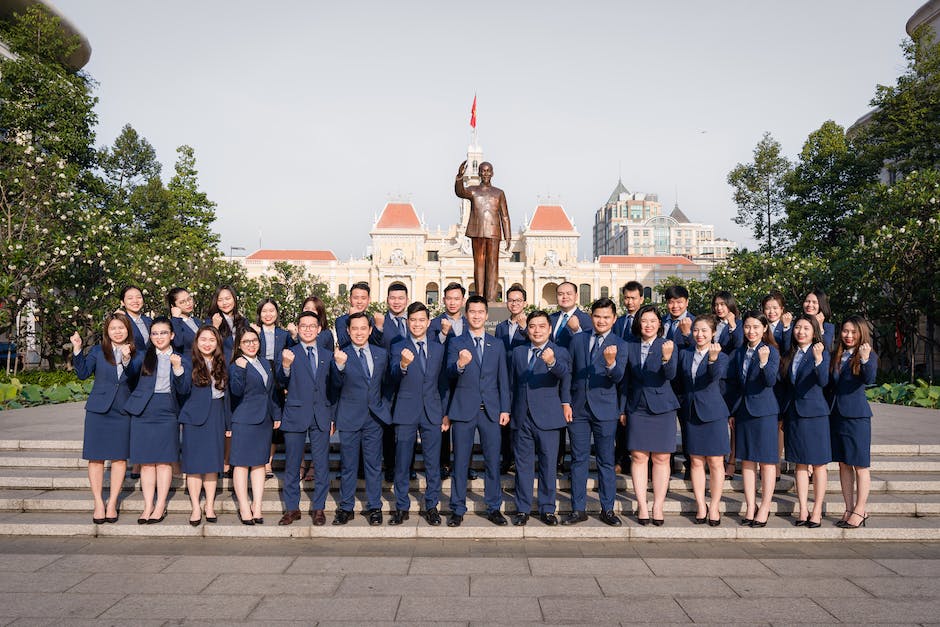Table of Contents
Championing Human Rights: The Impact of Malala Yousafzai’s Activism
Introduction
Malala Yousafzai, a Pakistani activist for female education and the youngest Nobel Prize laureate, has made a significant impact in championing human rights globally. Through her activism, Malala has shed light on the importance of education, particularly for girls, and has become a symbol of resilience and determination in the face of adversity. Her unwavering commitment to advocating for the rights of all individuals, regardless of gender or background, has inspired millions around the world and continues to drive positive change in the fight for human rights.
Malala Yousafzai: A Symbol of Courage and Resilience

Malala Yousafzai: A Symbol of Courage and Resilience
Malala Yousafzai, a young Pakistani activist, has become a symbol of courage and resilience in the fight for human rights, particularly the right to education for girls. Her unwavering determination to advocate for the rights of children and her own personal story of survival have made her an inspiration to millions around the world.
Born on July 12, 1997, in Mingora, a small town in the Swat Valley of Pakistan, Malala grew up in a society where the Taliban’s influence was growing. The Taliban, an extremist group, sought to impose strict Islamic law and restrict the rights of women and girls, including their access to education. Despite the challenges she faced, Malala’s father, Ziauddin Yousafzai, a passionate advocate for education himself, encouraged her to pursue her dreams and supported her in her activism.
At the tender age of 11, Malala began writing a blog under a pseudonym for the BBC Urdu service, detailing her experiences living under Taliban rule and her determination to continue her education. Her blog gained international attention, and she soon became a prominent voice for girls’ education in Pakistan. However, her activism did not go unnoticed by the Taliban, who saw her as a threat to their ideology.
On October 9, 2012, tragedy struck when Malala was shot in the head by a Taliban gunman while on her way home from school. The attack was an attempt to silence her and discourage others from speaking out against the Taliban’s oppressive regime. Miraculously, Malala survived the attack and was airlifted to the United Kingdom for medical treatment.
The assassination attempt on Malala only served to strengthen her resolve. She became an even more vocal advocate for girls’ education, using her platform to raise awareness about the importance of education in breaking the cycle of poverty and empowering girls to reach their full potential. In recognition of her efforts, Malala was awarded the Nobel Peace Prize in 2014, becoming the youngest-ever recipient of the prestigious award.
Malala’s impact extends far beyond her activism in Pakistan. She has become a global icon for human rights, inspiring countless individuals to stand up for what they believe in and fight for justice. Her story has shed light on the struggles faced by millions of children around the world who are denied access to education due to poverty, discrimination, or conflict.
Through the Malala Fund, a nonprofit organization she co-founded with her father, Malala continues to champion the right to education for all children, particularly girls. The fund works to provide quality education and empower girls to become agents of change in their communities. Malala’s tireless efforts have resulted in tangible improvements in access to education, with millions of girls benefiting from her advocacy.
Malala Yousafzai’s activism serves as a reminder that one person can make a difference, no matter their age or circumstances. Her courage and resilience in the face of adversity have inspired a generation of young activists to stand up for their rights and fight for a more just and equal world.
In conclusion, Malala Yousafzai’s journey from a young girl in Pakistan to a global advocate for human rights is a testament to the power of determination and the impact one individual can have on the world. Her unwavering commitment to education and her resilience in the face of adversity have made her a symbol of courage and hope. Through her activism, Malala has not only changed the lives of countless individuals but has also sparked a global movement for change. Her legacy will continue to inspire generations to come to champion human rights and fight for a better future.
The Importance of Education in Empowering Girls
Education is a fundamental right that should be accessible to all individuals, regardless of their gender. Unfortunately, in many parts of the world, girls are denied this basic right, which not only hinders their personal development but also perpetuates gender inequality. Malala Yousafzai, a young Pakistani activist, has been at the forefront of the fight for girls’ education, championing human rights and inspiring millions around the globe.
The importance of education in empowering girls cannot be overstated. Education equips individuals with the knowledge and skills necessary to navigate the complexities of the modern world. It opens doors to opportunities, enabling individuals to break free from the cycle of poverty and contribute meaningfully to society. For girls, education is particularly transformative, as it challenges traditional gender roles and empowers them to pursue their dreams and aspirations.
Malala Yousafzai’s activism has shed light on the barriers that girls face in accessing education. Growing up in the Swat Valley in Pakistan, Malala witnessed firsthand the oppressive regime of the Taliban, who sought to deny girls their right to education. Undeterred by the threats and violence, Malala spoke out against the Taliban’s oppressive policies, advocating for girls’ education and the importance of human rights.
Malala’s activism gained international attention when she survived an assassination attempt by the Taliban in 2012. This horrific incident only strengthened her resolve to fight for girls’ education. Malala’s courage and determination resonated with people worldwide, and she became a symbol of hope and inspiration for millions.
Through her advocacy work, Malala has highlighted the numerous benefits of educating girls. Studies have shown that educated girls are more likely to marry later, have fewer children, and have better health outcomes for themselves and their families. Furthermore, educated girls are more likely to participate in the workforce, contributing to economic growth and development.
However, despite the progress made in recent years, millions of girls around the world still face significant barriers to education. Poverty, cultural norms, child marriage, and gender-based violence are just some of the obstacles that prevent girls from accessing education. Malala’s activism has brought attention to these issues, urging governments and international organizations to take action and invest in girls’ education.
In recognition of her tireless efforts, Malala was awarded the Nobel Peace Prize in 2014, becoming the youngest-ever recipient of this prestigious award. This accolade further amplified her message and provided a platform to advocate for girls’ education on a global scale.
Malala’s impact extends beyond her advocacy work. She has also established the Malala Fund, a nonprofit organization that works to ensure every girl has access to 12 years of free, quality education. The Malala Fund supports local activists and organizations in their efforts to promote girls’ education and advocates for policy changes at the national and international levels.
In conclusion, the importance of education in empowering girls cannot be overstated. Malala Yousafzai’s activism has been instrumental in shedding light on the barriers that girls face in accessing education and advocating for their rights. Through her courage and determination, Malala has inspired millions and brought attention to the transformative power of education. However, there is still much work to be done to ensure that every girl has the opportunity to receive a quality education. It is up to governments, organizations, and individuals to continue championing the cause of girls’ education and working towards a more equitable and inclusive world.
Malala’s Fight Against Gender Discrimination
Malala Yousafzai, a young Pakistani activist, has become a symbol of hope and resilience in the fight for gender equality and human rights. Her unwavering determination to challenge gender discrimination has made a significant impact on the lives of millions around the world. Through her activism, Malala has shed light on the importance of education for girls and has inspired a global movement for change.
Growing up in the Swat Valley in Pakistan, Malala witnessed firsthand the oppressive conditions faced by girls and women in her community. The Taliban’s strict interpretation of Islamic law led to the closure of girls’ schools and the denial of basic rights to women. Malala, even at a young age, recognized the injustice of these actions and decided to speak out against them.
In 2009, at the age of just 11, Malala began writing a blog for the BBC under a pseudonym, detailing her experiences living under Taliban rule and advocating for girls’ education. Her powerful words resonated with people around the world, and she quickly gained international recognition for her bravery and determination.
However, Malala’s activism did not go unnoticed by the Taliban. In 2012, she was targeted and shot in the head by a Taliban gunman while on her way home from school. Miraculously, she survived the attack and was airlifted to the United Kingdom for medical treatment. This horrific incident only strengthened Malala’s resolve to fight for the rights of girls and women.
Since recovering from her injuries, Malala has continued to be a vocal advocate for girls’ education and gender equality. She co-founded the Malala Fund, a non-profit organization that works to ensure every girl has access to 12 years of free, safe, quality education. Through the fund, Malala has supported various projects around the world, including building schools, providing scholarships, and advocating for policy changes to promote girls’ education.
Malala’s impact goes beyond her work with the Malala Fund. She has addressed the United Nations, spoken at numerous conferences and events, and met with world leaders to advocate for girls’ education. Her powerful speeches and personal stories have touched the hearts of millions, inspiring them to take action and support the cause.
Malala’s activism has not been without challenges. She has faced criticism and backlash from conservative elements in her own country and beyond. Some argue that her advocacy for girls’ education is a Western agenda imposed on Pakistan. However, Malala remains steadfast in her belief that education is a fundamental right for all children, regardless of their gender or background.
Through her activism, Malala has shown that one person can make a difference. Her courage and determination have inspired a generation of young activists to stand up for their rights and fight for a more just and equal world. She has become a symbol of hope and resilience, reminding us all of the power of education and the importance of championing human rights.
In conclusion, Malala Yousafzai’s fight against gender discrimination has had a profound impact on the global stage. Through her activism, she has brought attention to the importance of girls’ education and has inspired millions to join the fight for gender equality. Despite facing immense challenges and threats to her own safety, Malala remains unwavering in her commitment to creating a world where every child has access to education and where gender discrimination is a thing of the past. Her legacy will continue to inspire future generations to champion human rights and work towards a more just and equal society.
The Global Impact of Malala’s Advocacy for Human Rights
Malala Yousafzai, a young Pakistani activist, has become a global symbol of courage and resilience in the fight for human rights. Her advocacy for education and women’s rights has resonated with people around the world, inspiring millions to take action and champion the cause of equality. The impact of Malala’s activism can be seen on a global scale, as her message has reached far beyond the borders of her native Pakistan.
One of the most significant ways in which Malala has made a global impact is through her speeches and public appearances. She has spoken at numerous international forums, including the United Nations, where she delivered a powerful address calling for universal access to education. Her eloquence and passion have captivated audiences, and her message has been amplified through social media and news coverage. By speaking out on behalf of those who are silenced, Malala has given a voice to the voiceless and inspired others to do the same.
In addition to her speeches, Malala has also established the Malala Fund, a non-profit organization dedicated to promoting education for girls around the world. Through this organization, she has been able to provide financial support and resources to grassroots initiatives that are working to improve access to education in underserved communities. The Malala Fund has partnered with local organizations in countries such as Nigeria, Afghanistan, and India, helping to empower girls and break down the barriers that prevent them from receiving an education.
Malala’s impact can also be seen in the policy changes that have occurred as a result of her advocacy. In 2014, she was awarded the Nobel Peace Prize, becoming the youngest-ever recipient of this prestigious honor. This recognition not only brought attention to her cause but also put pressure on governments and international organizations to take action. In response, several countries have implemented policies aimed at increasing access to education and protecting the rights of women and girls. For example, in Nigeria, the government launched the Safe Schools Initiative, which aims to provide a secure learning environment for children in conflict-affected areas.
Furthermore, Malala’s activism has inspired a new generation of young activists who are following in her footsteps. Through her courage and determination, she has shown that age is not a barrier to making a difference. Young people around the world have been inspired by her story and have taken up the mantle of advocating for human rights in their own communities. From organizing protests to starting their own non-profit organizations, these young activists are carrying forward Malala’s legacy and working towards a more just and equal world.
In conclusion, the global impact of Malala Yousafzai’s advocacy for human rights cannot be overstated. Through her speeches, the establishment of the Malala Fund, and the policy changes that have occurred as a result of her activism, she has made a tangible difference in the lives of millions. Furthermore, her courage and resilience have inspired a new generation of activists who are working towards a more just and equal world. Malala’s story is a testament to the power of one individual to effect change and serves as a reminder that the fight for human rights is a collective responsibility.
Q&A
1. What is the impact of Malala Yousafzai’s activism on championing human rights?
Malala Yousafzai’s activism has had a significant impact on championing human rights, particularly in advocating for girls’ education and women’s rights globally.
2. How has Malala Yousafzai’s activism influenced the fight for human rights?
Malala Yousafzai’s activism has inspired and mobilized individuals and organizations worldwide to prioritize and take action on human rights issues, especially those affecting women and children.
3. What specific achievements has Malala Yousafzai accomplished in her activism for human rights?
Malala Yousafzai’s activism led to her receiving the Nobel Peace Prize in 2014, making her the youngest-ever recipient of this prestigious award. She has also established the Malala Fund, which supports education initiatives for girls globally.
4. How has Malala Yousafzai’s activism impacted the lives of individuals?
Malala Yousafzai’s activism has empowered individuals, particularly girls and women, by giving them a voice and encouraging them to stand up for their rights. Her advocacy has also raised awareness about the importance of education and gender equality, leading to positive changes in communities worldwide.
Conclusion
In conclusion, Malala Yousafzai’s activism has had a significant impact on championing human rights. Through her courageous advocacy for girls’ education and her unwavering commitment to equality, she has become a global symbol of resilience and determination. Malala’s efforts have not only raised awareness about the importance of education for all children, but have also inspired countless individuals to stand up for their rights and fight against oppression. Her activism has demonstrated the power of one individual to make a difference and has paved the way for progress in the fight for human rights worldwide.




